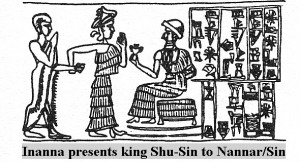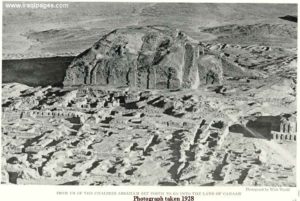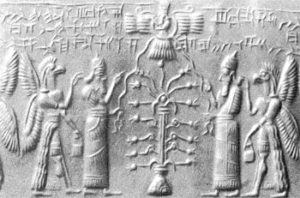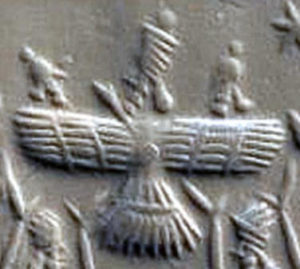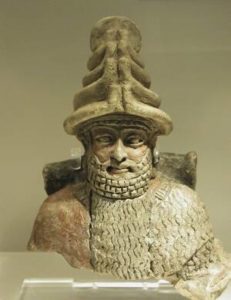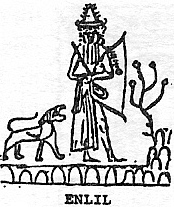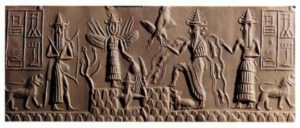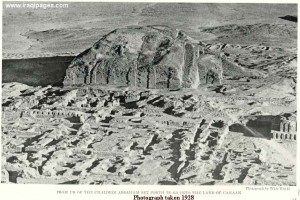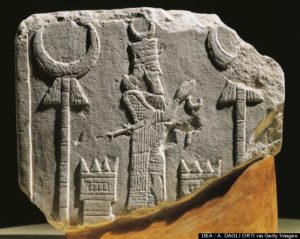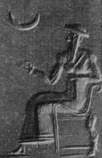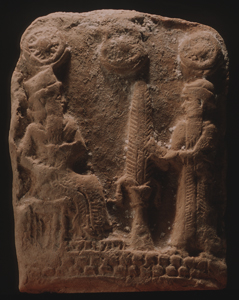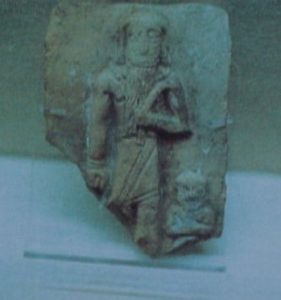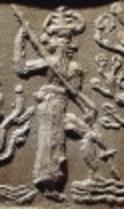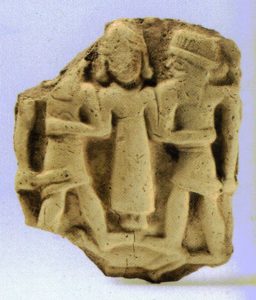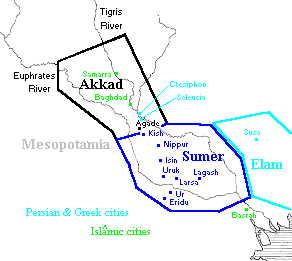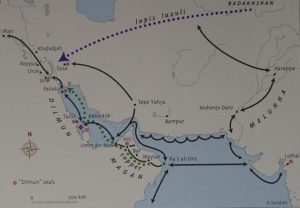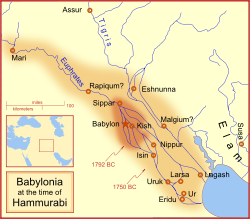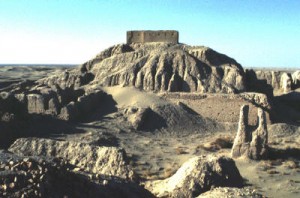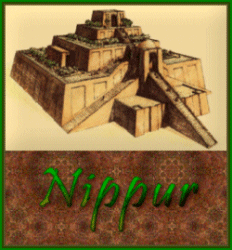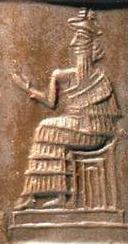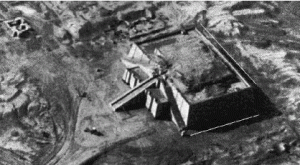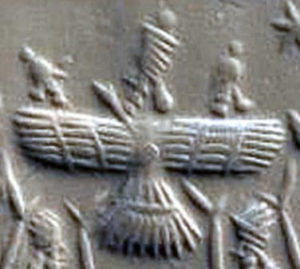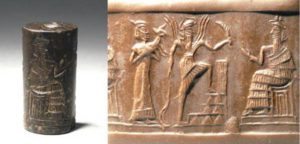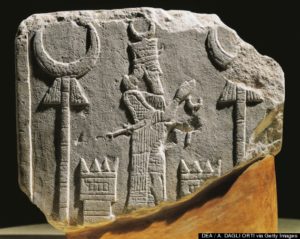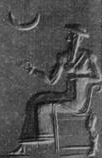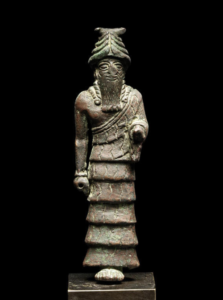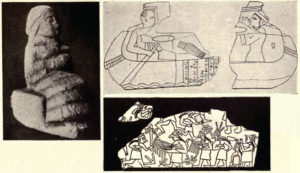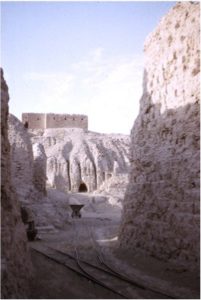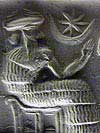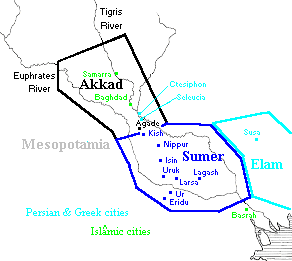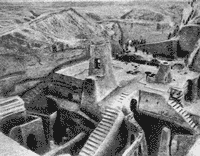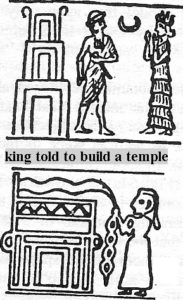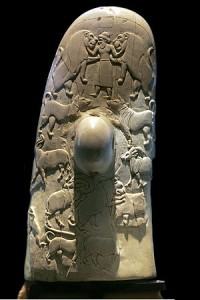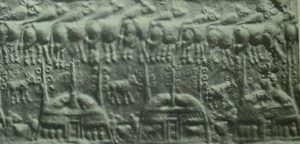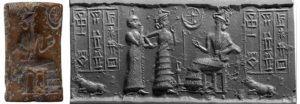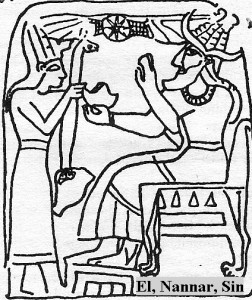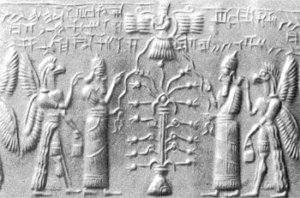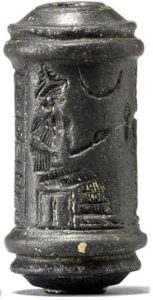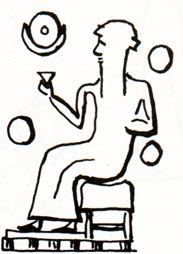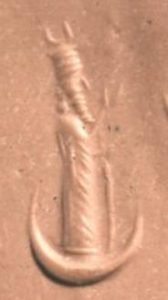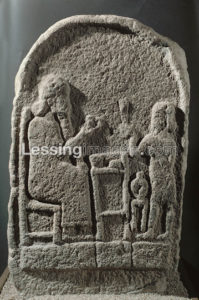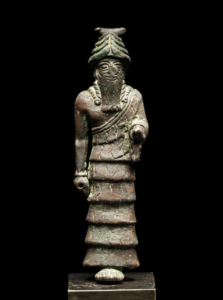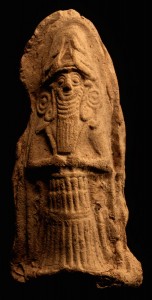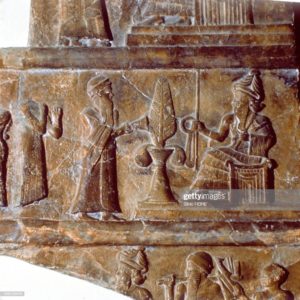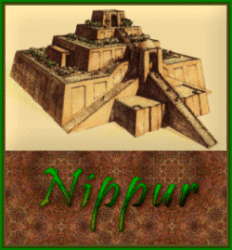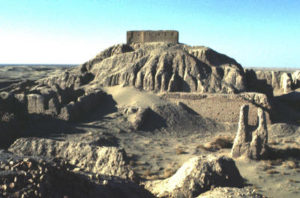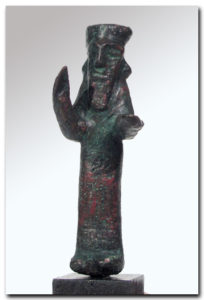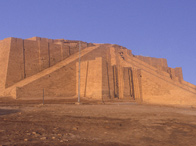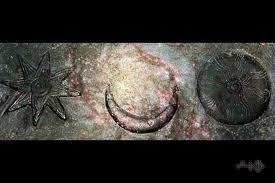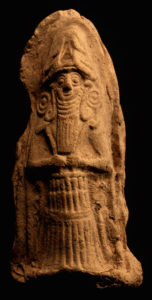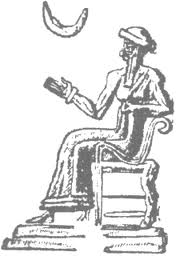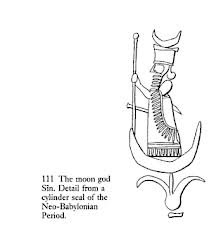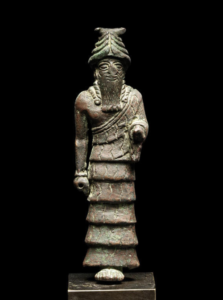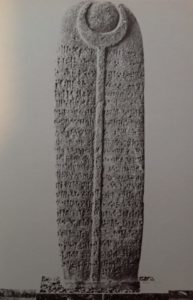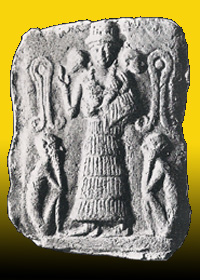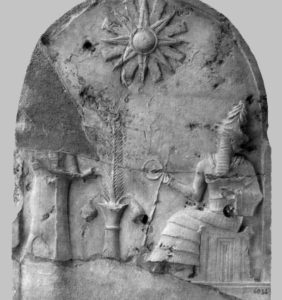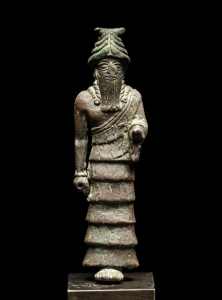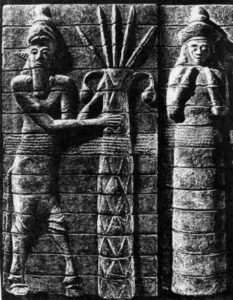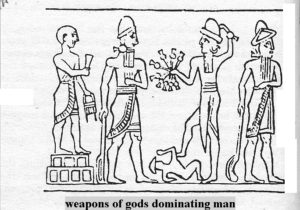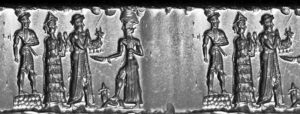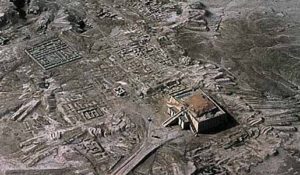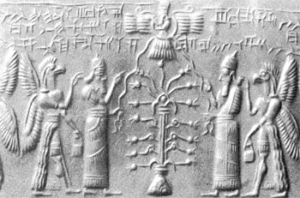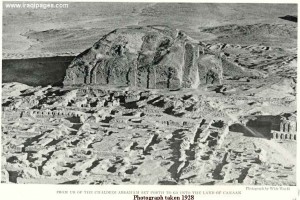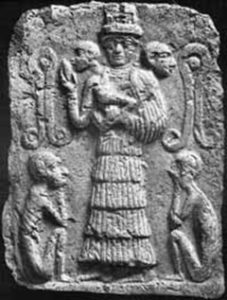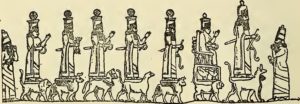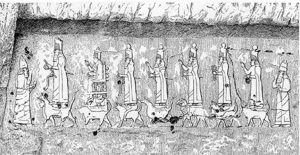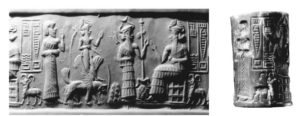SEE SITCHIN’S EARTH CHRONICLES, ETC.:
(Texts: All Artifacts, Color Coding, & Writings in Bold Type With Italics Inside Parenthesis, are Added by Editor R. Brown, not the Authors, Translators, or Publishers!)
(gods in blue …mixed-breed demigods in teal…)
When the next (and last) king of Ur, Ibbi-Sin, (son to Shu-Sin) ascended the throne, raiders from the west were clashing with the Elamite mercenaries in Mesopotamia proper. Soon Sumer’s heartland was under siege; the people of Ur and Nippur were huddled behind protective walls, and the influence of Nannar had shrunk to a small enclave.
Waiting in the wings, as once before, was Marduk. Believing his time for supremacy had finally come, he left his land of exile and led his followers back to Babylon.
Ibbi-Sin put his trust again in Nannar and Inanna, installing himself in his second year as High Priest of Inanna’s temple (residence) in Uruk…In the fourth year of his reign he was told that
“The Son in the west will arise…it is an omen for Ibbi-Sin: Ur shall be judged…”
In his fifth year, Ibbi-Sin sought further strength by becoming High Priest of Inanna at her shrine in Ur.. But that too was no help…As the sixth year began, the omens “concerning destruction” became more urgent and more specific.
“When the sixth year comes, the inhabitants in Ur will be trapped,…”
Another omen said,
“When for the second time, he who calls himself Supreme,
like one whose chest has been anointed, shall come from the west…”
That very year, as messages from the borders reveal,
“hostile Westerners had entered the plain!…”
of Mesopotamia; without resistance, they quickly
“entered the interior of the country, taking one by one all the great fortresses…”
Marduk, as the omens had predicted, returned to Babylon for the second time.
“In Hattiland I asked an oracle (about) my throne and my Lordship;
In its midst (I asked); ‘Until when?…”
Then, in that twenty-fourth year, he received a favorable omen:
“My days (1st person) (of exile) were completed;
To my city (I set my course);
My temple Esagila (residence in Babylon) as a mount (to raise / rebuild),
My everlasting abode to (reestablish).
I raised my heels (toward Babylon)
Through…lands (I went) to my city her (future / well-being) to establish,
A king in Babylon to (install)
In the house of my covenant…
In the mountlike Esagil…
By Anu created…
Into the Esagil…
A platform (landing pad) to raise…
In my city…
Joy…”
“chase away evil and bad luck…bring motherly love to Mankind…”
It was then that the holy city was despoiled and its shrine, the Ekur (Enlil’s temple – residence in Nippur), desecrated. Ninurta accused the followers of Marduk of this evil deed; but it was not so; it was his ally Nergal / Era who had done it!
“Erra, the pitiless one, entered the sacred precinct.
He stationed himself in the sacred precinct, he beheld the Ekur.
His mouth he opened, he said to his young men:
‘Carry off the spoil of Ekur, take away its valuables,
destroy its foundation, break down the enclosure of the shrine!’…”
When Enlil, “loftily enthroned,” heard that his temple had been destroyed, its shrine defiled, that “in the holy of holies the veil was torn away”, he rushed back to Nippur.
“Riding in front of him were gods clothed with radiance;…”
he himself,
“set off brilliance like lightning…”
as he came down from the skies;
“made the holy place shake…”
as he ascended to the sacred precinct. Enlil then addressed himself to his son, “the prince Ninurta.” to find out who defiled the sacred place. But instead of telling the truth, that it was Erra, his ally, Ninurta pointing the accusing finger at Marduk and his followers…
The Babylonian text asserts that Ninurta was acting without the required respect of meeting with his father:
“not fearing for his life, he removed not his tiara…”
To Enlil
“evil he spoke…there was no justice, destruction was conceived…
Enlil against Babylon caused evil to be planned…”
In addition to “evil deeds” against Marduk and Babylon, an attack against Nabu and his temple Ezida in Borsippa was also planned. But Nabu managed to escape westward
“Fron Ezida…Nabu, to marshal all his cities set his step;
Toward the great sea he set his course…”
…verses in the Babylonian text…have a direct parallel in the biblical tale of the destruction of Sodom and Gomorrah:
“But when the son of Marduk in the land of the coast was,
He-of-the-Evil-Wind (Erra) with heat the plain-land burnt…”
“He (Nabu) the great sea entered,
Sat upon a throne which was not his
(Because) Ezida, the legitimate abode, was overrun…”
Enki stood by his firstborn son:
“Now that Prince Marduk has arisen,
now that the people for the second time have raised his image,
why does Erra continue his opposition?…”
Finally, loosing his patience, Enki shouted at Nergal to get out of his presence. Leaving in a huff, Nergal returned to his domain. “Consulting with himself,” he decided to unleash the awesome weapons:
“The lands I will destroy, to a deep dust-heap make them;
the cities I will upheaval, to desolation turn them;
the mountains I will flatten, their animals make disappear;
the seas I will agitate, that which teems in them I will decimate;
the people I will make vanish, their souls shall turn to vapor;
none shall be spared….”
We learn from a text…that it was Gibil, whose domain in Africa adjoined that of Nergal, who alerted Marduk to the destructive scheme hatched by Nergal…It was then that Gibil “these words to Marduk did speak” in regard to the
“Those seven, in the mountain they abide, in a cavity inside the earth they dwell.
From this place with a brilliance they will rush forth,
From Earth to Heaven, clad with terror…”
The Year of Doom (nuclear holocaust)–2024 B.C.–was the sixth year of reign of Ibbi-Sin, the last king of Ur...
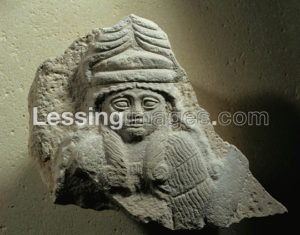 (Bau, royal daughter to King Anu, goddess to mixed-breed kings for thousands of years)
(Bau, royal daughter to King Anu, goddess to mixed-breed kings for thousands of years)